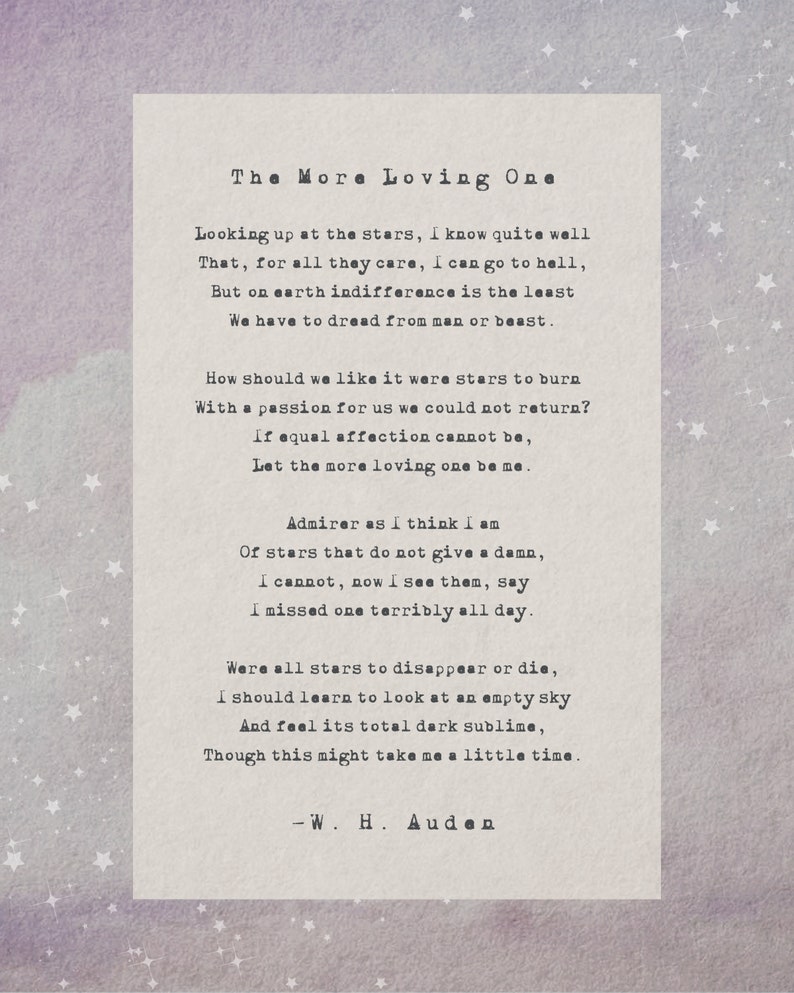
Set in a wartime bar in New York City, Auden uses four characters – Quant, Malin, Rosetta, and Emble – to explore and develop his themes. The poem deals, in eclogue form, with man's quest to find substance and identity in a shifting and increasingly industrialized world. Auden, written mostly in a modern version of Anglo-Saxon alliterative verse. The book also includes Auden's longer, more thematically varied poems, from the expressionist charade "Paid on Both Sides" to the formal couplets of "New Year Letter" the darkly comic sequel to The Tempest, "The Sea and the Mirror" and a baroque eclogue set in a wartime bar, "The Age of Anxiety." This new edition includes a critical appreciation of Auden by Edward Mendelson, the editor of the present volume and Auden's literary executor.The Age of Anxiety: A Baroque Eclogue (1947 first UK edition, 1948) is a long poem in six parts by W. This book includes his famous early poems about transient love ("Lay your sleeping head, my love," "Stop all the clocks, cut off the telephone") and his later poems about enduring love ("In Sickness and in Health," "First Things First"). "All the poems I have written were written for love," Auden once said.

His poems manage to be secular and sacred, philosophical and erotic, personal and universal. His tone ranges from spirited comedy to memorable profundity-often within the same work. His styles and forms extend from ballads and songs to haiku and limericks to sonnets, sestinas, prose poems, and dozens of other constructions of his own invention. From the anxious warnings of his early verse through the expansive historical perspectives of his middle years to the celebrations and thanksgiving in his later work, Auden wrote in a voice that addressed readers personally rather than as part of a collective audience.


Auden's work has perhaps the widest range and the greatest depth of any English poet of the past three centuries. Auden divided his poems into sections that corresponded to what he referred to as chapters in his life, each one beginning with a change in his inner life or external circumstances: the moment in 1933 when he first knew "exactly what it means to love one's neighbor as oneself" his move from Britain to America in 1939 his first summer in Italy in 1948 his move to a summerhouse in Austria in 1958 and his return to England in 1972. This volume includes all the poems that Auden wished to preserve, in a text that includes his final revisions, with corrections based on the latest research. Auden's birth, the Modern Library offers this elegant edition of the collected poems of one of the greatest poets of the twentieth century.


 0 kommentar(er)
0 kommentar(er)
